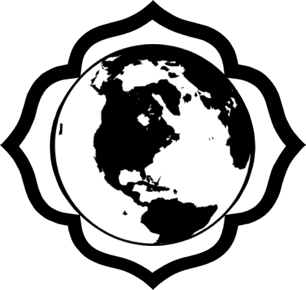Mindfulness assumptions
In my view, we really aren’t separate from our Self, we just think we are and have thus habitually identified the ‘I am’ consciousness as the separate ego that is tied to the body and the past. That is, as the One Self looks through you, you think that it’s awareness is your personal possession, and as it looks through me, I believe it is me. Therefore when we typically practice mindfulness we assume our observing awareness is personal, when it really isn’t. This unconscious assumption and attachment limits the effects of our meditation, because what we believe, we create and experience. So therefore no matter how mindful we are, we cannot exceed this limiting belief, although we can bring it to conscious awareness. The thing I’ve noticed about Buddhist meditation, is that it tends to apply non-attachment more to the body and the emotions, and is less rigorous about applying non-attachment to the ideas underlying meditation practice. I am all for being totally present in the moment, but that includes making our unconscious beliefs and assumptions conscious and then letting them go. Then we find that our conscious awareness is like the tip of an iceberg or a space that extends without limit. And who knows what other qualities we may find within it, if we may just accept what is, without personal assumptions. What would our desire be then? For desire, like mind, also seems intrinsic and purposeful. And I can’t believe that we have desire for no greater reason than to overcome it.
The assumption that underlies a more transpersonal mindfulness meditation is that:
The source of my consciousness is not personal or limited to my brain, but is a universal energy field.
This perspective allows allows the practitioner to feel freer and gives the imagination more room to expand. This belief also allows one to feel a greater connection and empathy with others, and to more easily imagine that we are really an extension of the same consciousness and life. We still look at the same world with all it’s suffering and problems, but this perception is now integral to a much wider context or embrace that is somehow easier to bear. There are also some implicit implications from this assumption that keep one’s mind open to the possibility of spiritual knowing that transcends anything possible if one’s consciousness were merely a brain phenomena.
I believe that Bible myth of Adam and Eve and mankind’s separation from God, describes the belief we collectively took on when we decided that the separation of the body and the ego was our reality. And our entire historical culture has been based on this fear based idea, with its associated emphasis on lack, judgement, projection, denial, violence and guilt. I believe that this present period in history is experiencing an increase in the energy of the soul or Self that is enabling us to make a quantum jump outside the confines of the separate ego and so that we may ultimately function consciously as the Self or Christ. Thus the Second Coming, which will be a collective experience.
I honestly feel that the belief in separation and the fear associated with it preceded religion, which merely provided mythical symbols to articulate something internalized in the collective unconscious in the dawn of time. Although the Adam and Eve story also exists in Judaism and Islam it is interpreted somewhat differently from Christianity. Although Buddhism and Hinduism, as far as I know, don’t have this myth so prominent, it’s existence, to my mind, can be deduced by the actions of people. Buddhists, for example, believe the material world is an illusion they have to escape from and that they are tied down to desire for it. So they obviously feel that they are separate from something essential that they lack and need and they must meditate to attain. Hindus also, in their belief in reincarnation and their supplication to their many gods, feel that they are separate from the power that sustains them. All religions place an emphasis on the powerful intercessor, savior or guru who give what people lack and make a connection that they are separate from. Likewise the wars and class struggles down the ages in all faiths couldn’t have happened if there was not a fundamental belief in fear and separation of ‘them’ from ‘us’.
Whereas, if we are really an extension of one universal consciousness and life force, we already intrinsically have all potentials associated with that within us. We don’t have to deny the body or the world, we merely have to see these as forms created by and imbued with this consciousness - not separate finite realities.
I think another quality, besides desire, that we will notice that is intrinsically within us as we are mindfully observing our experience and our self, is the feeling of love. Love may be associated with feelings for particular people or when being moved by beauty, kindness, courage or innocence, etc. But if we really meditate on love we find there is an intention within it, an urge and will toward another level of reality. It’s rather mysterious and powerful. It confronts us with a choice. We can stay separate or we can surrender to it and be transformed. Love also informs us that we are part of a larger reality that connects and unites us. We want to say yes to it, but may hold back out of fear. Being mindful then, is but the first step in a process of engagement with life, if we would honor love, and not just stay the separate observer. To stay the separate observer would place more emphasis on beliefs about what is good for us as meditators, than what love and life are calling us to do.
